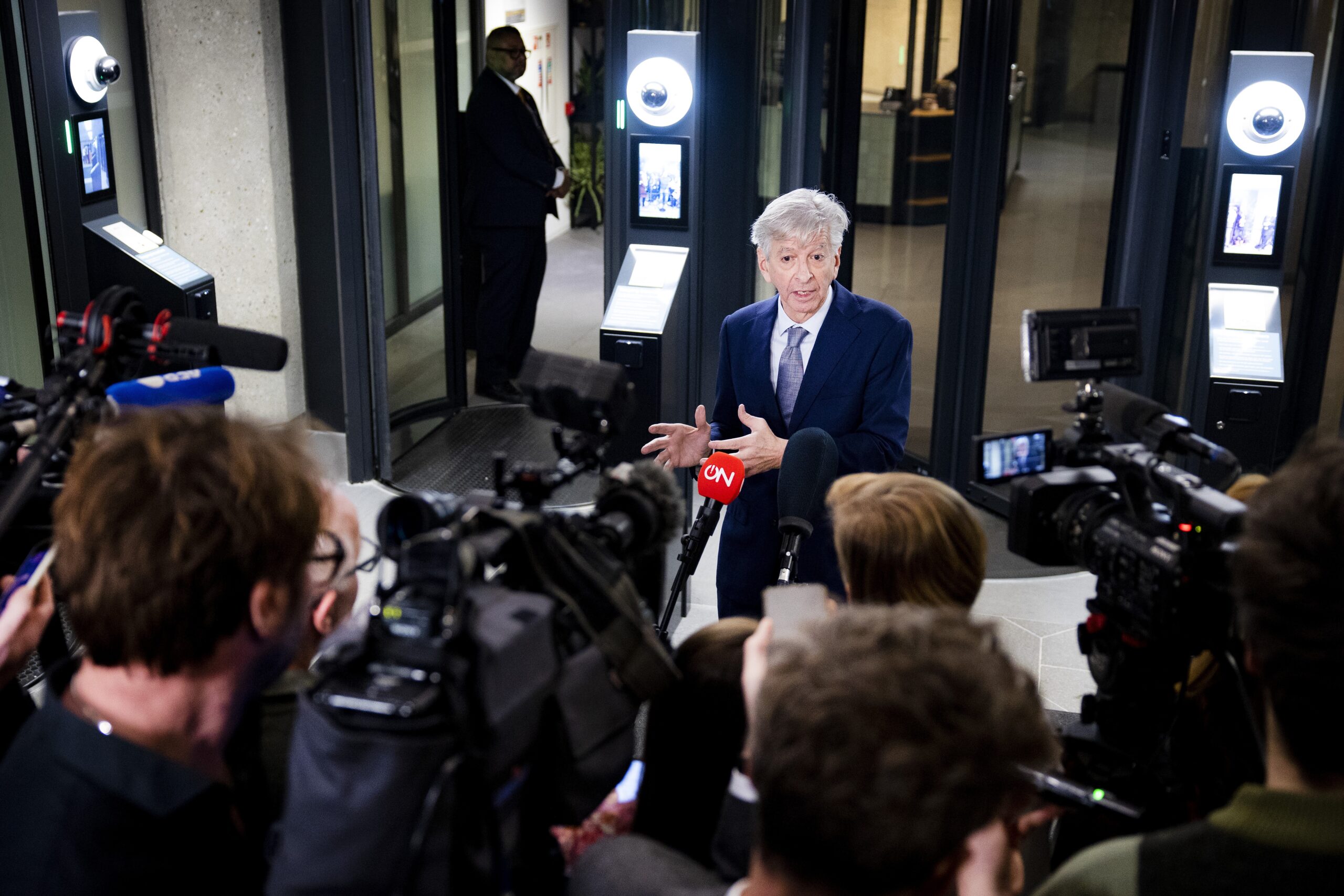Plasterk: right-wing quartet “can and must” settle differences

Parliamentary scout Ronald Plasterk has said the four parties capable of forming a right-wing coalition “must” settle their differences for the sake of good governance.
“In the end, the country must be governed,” Plasterk said in his final report, following two weeks of preliminary negotiations with the leaders of the four parties – the far-right PVV, right-wing liberal VVD, centre-right NSC and the farmers’ party BBB.
His comment echoed the reaction of NSC leader Pieter Omtzigt to the election result on November 22, which made Geert Wilders’s PVV the largest party with 37 MPs. The VVD has 24 seats and NSC 22, which would be enough for a slim majority, while the support of the BBB will be needed in the Senate.
Omtzigt’s reservations about the PVV’s stance on constitutional matters such as closing borders, holding a referendum on leaving the European Union and banning the Koran and Islamic schools, are one of the major stumbling blocks to a coalition, Plasterk acknowledged.
Plasterk, a former Labour (PvdA) interior minister who has since become a columnist for the popular Telegraaf newspaper, said he expected the next phase of negotiations to take about two months.
“I think they can come to an agreement and I think they must,” he said. “The leaders of the four parties that have been named, and probably others as well, need to sit down at the table and consider the country’s problems.
“First of all they need to see if there is any prospect of coming to an agreement in a later round [of negotiations] on a number of points that have been raised.”
He said the talks should be a three-stage process, starting with the constitutional issues, to see if the four parties could find a way forward. If that hurdle is overcome they can move on to discussing key policy areas such as migration, international relations, the cost of living and climate change.
Finally the parties should discuss the shape of the cabinet. Wilders has said he would prefer a government with a working majority in parliament, but VVD leader Dilan Yesilgöz has said her party will only support a coalition of the other parties through a confidence and supply deal.
Omtzigt has said a minority administration or a technocratic cabinet made up of non-partisan ministers would be acceptable, but there are question marks about whether he would support a government headed by Wilders.
Thank you for donating to DutchNews.nl.
We could not provide the Dutch News service, and keep it free of charge, without the generous support of our readers. Your donations allow us to report on issues you tell us matter, and provide you with a summary of the most important Dutch news each day.
Make a donation